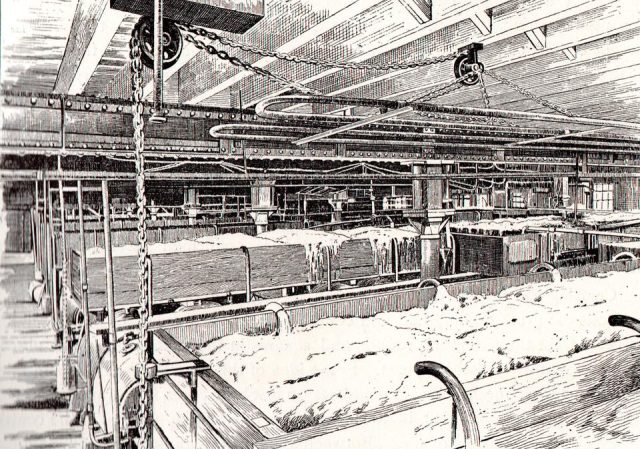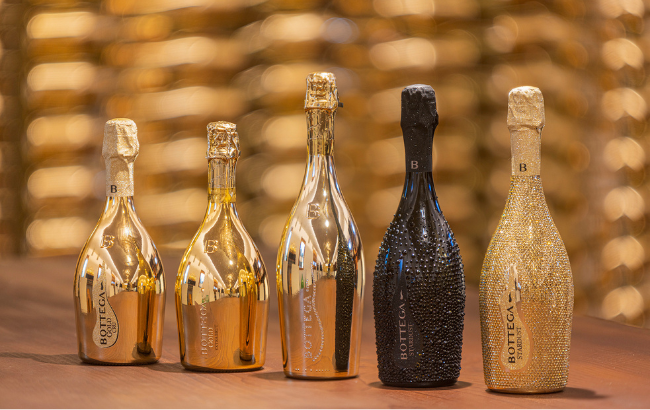CMBC faces criticism on halting brewing history at Burton-on-Trent
By Jessica MasonBeer fans are crushed at Carlsberg Marston’s Brewing Company (CMBC) decision to retire the four remaining union sets at Marston’s Burton-on-Trent brewery.

The move by CMBC has been cited as a bid to cut costs, along with the decline of the cask ale market meaning that brewing using them no longer makes fiscal sense, is reportedly a way for the brewing giant to move with the times.
According to reports, CMBC director of brewing, Emma Gilleland revealed that by moving cask Pedigree across to stainless steel fermenters, the brewery will be able to deliver consistent, strong quality for its customers, going forwards.
Speaking candidly about the issue on his blogspot site, beer blogger Paul Bailey highlighted how “currently, Pedigree destined for cask sale is fermented to completion in open fermenters, before being blended, prior to packaging, with beer brewed in the Union Sets. This practice will now cease, and conventional fermentation will be the order of the day. CMBC claims this will help ensure a high-quality cost product (whatever that means), while delivering improved sustainability and efficiency at the brewery, by reducing water and energy consumption.”
Speaking to the drinks business about the decision, a spokesperson for CMBC said: “After careful consideration, we’ve made the decision to retire the remaining active union sets at our Marston’s Brewery in Burton. Maintaining the union sets, a design created in the Victorian era, is both time, labour and energy intensive. Our decision to retire them will support productivity at the brewery, allowing our people more time to dedicate to brewing great ale.”
The spokesperson told db: ““The four union sets in the Alpin room are a storied part of the brewery’s heritage which we are committed to preserving” and revealed that “two of the union sets in the Alpin Room will remain at the brewery so they can continue to be part of its future and to preserve these iconic symbols of British brewing for posterity”.
This means, as highlighted by Bailey, that the items will be on show as museum artefacts from this point onwards. A move that the Campaign for Real Ale (CAMRA) has also said it is let down to discover.
Partner Content
Marstons was the last brewery in England to use this method of fermentation and, according to Bailey this “historic process invigorates the yeast, clarifies the beer, and leaves unwanted flavours and dead yeast cells behind” and “the beer ferments in the sets for five further days, with the yeast bubbling for the initial two to three days through stainless steel ‘swan neck’ pipes into a yeast trough above. This offers a protective blanket of CO2 for the beer, and at the end of the process, the yeast is collected to be used for other beers or sold for Marmite.” Essentially, if the union sets are put out of action, the tradition of this brewing technique abruptly ends.
Reacting to the news, CAMRA chairman Nik Antona said: “It’s obviously hugely disappointing that CMBC has taken the decision to retire its iconic Burton Unions. It is arguably the last brewery in the world, and certainly in the UK, using this method to brew beer and this decision will see a unique and historic part of Britain’s brewing heritage declared completely extinct. We’d urge CMBC to find some way to preserve these historic pieces of brewing equipment rather than simply scrap them, or make the Union Sets available to another brewery which might be interested in preserving this tradition.”
Antona added: “We do understand the need for breweries to remain efficient and ensure quality at a time when we are sadly seeing many closures. CAMRA is reassured that this news is tempered by the fact CMBC has invested a significant sum, worth several millions, in the site, which hopefully will secure continued brewing and support the cask ales which have long been brewed in Burton-on-Trent.”
In response to the decision, a Facebook page named ‘Save the Burton Unions’ has also een formed to help show CMBC that this decision is the wrong one, and has already gained over 600 members.
Responding to the creation of the Facebook page, the CMBC spokesperson told db: “We acknowledge that some people feel really strongly about the union sets, given their important role as part of the brewing history at Burton. That’s why this decision has been taken after careful consideration, including planning for the preservation of the union sets for cultural and educational purposes.”
Last month, CMBC’s closure of Ringwood Brewery was called ‘corporate vandalism’ and a “tour of destruction” by the beer industry with many questioning why it was putting an end to historical brewing sites existing. Beer fans responded with their views after the business also closed down historic brewery sites for Jennings and Wychwood before revealing its plans for Ringwood to cease operations. In its decision to close Wychwood Brewery, which CMBC revealed in September, the beer giant claimed that the “decline of the cask ale market” was the core reason.
Related news
Which beer styles are the most difficult to brew?




